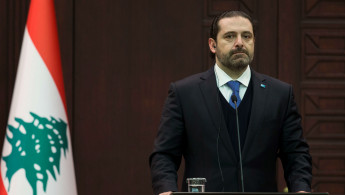Rudderless Lebanon could miss out on aid, France warns
Lebanon's economy has looked on the brink of collapse for some time but a Paris conference dubbed CEDRE in April earned it $11 billion in aid pledges.
Polls held the following month gave Saad Hariri a new term as prime minister but Lebanon's fractious political class has since failed to agree on a government line-up.
Seven months on, a breakthrough does not seem imminent and the French ambassador to Lebanon Bruno Foucher warned that Lebanon stood to lose a lot.
"We deeply regret that our Lebanese friends are not able to agree on a government," he said during a press conference held on a French frigate making a stop in Beirut.
The amounts pledged in Paris were unexpectedly high and other conferences have also mustered support for Lebanon, whose economy has been in a downward spiral for years due to political divisions and corruption.
The outbreak of violence in neighbouring Syria in 2011 added to those woes, keeping tourists away and triggering a massive influx of refugees that has strained public services.
"The lack of a government in Lebanon means running the risk that this dynamic in the international community is lost," Foucher said.
"That moment could pass."
The French envoy explained that a new government was needed to undertake the programme contained in the CEDRE plan and warned that investors would not wait for forever.
"There are other countries that may need international assistance," he said.
Government formation is often a drawn-out process in Lebanon, where a complex governing system seeks to maintain a precarious balance of power between its various political and religious communities.





 Follow the Middle East's top stories in English at The New Arab on Google News
Follow the Middle East's top stories in English at The New Arab on Google News
![Israeli forces ordered bombed Gaza's Jabalia, ordering residents to leave [Getty]](/sites/default/files/styles/image_330x185/public/2176418030.jpeg?h=a5f2f23a&itok=_YGZaP1z)

